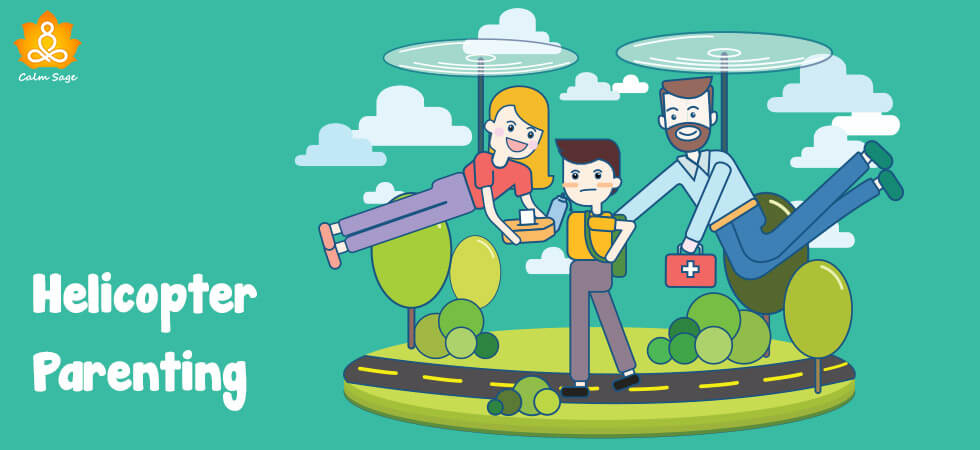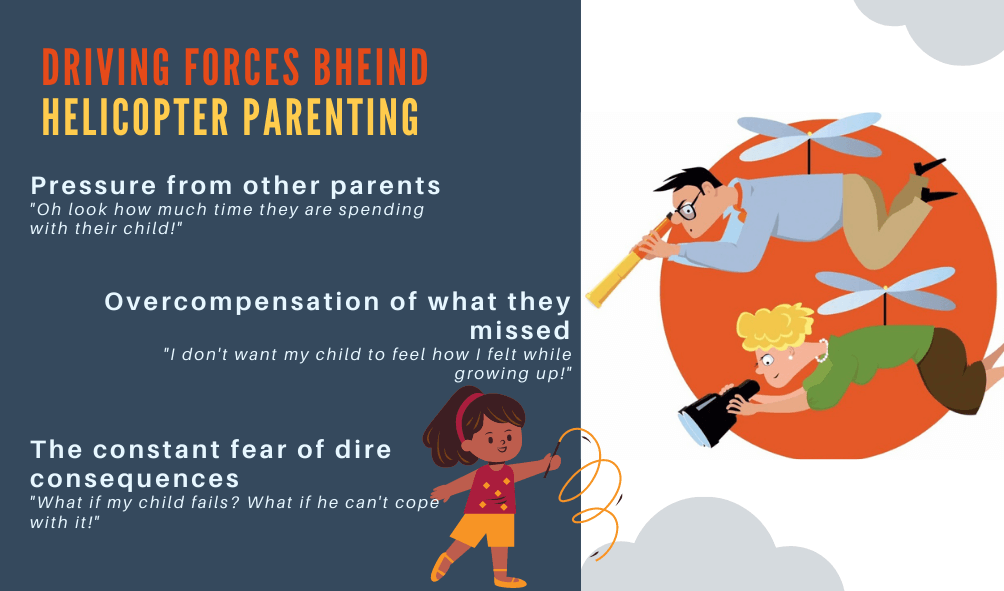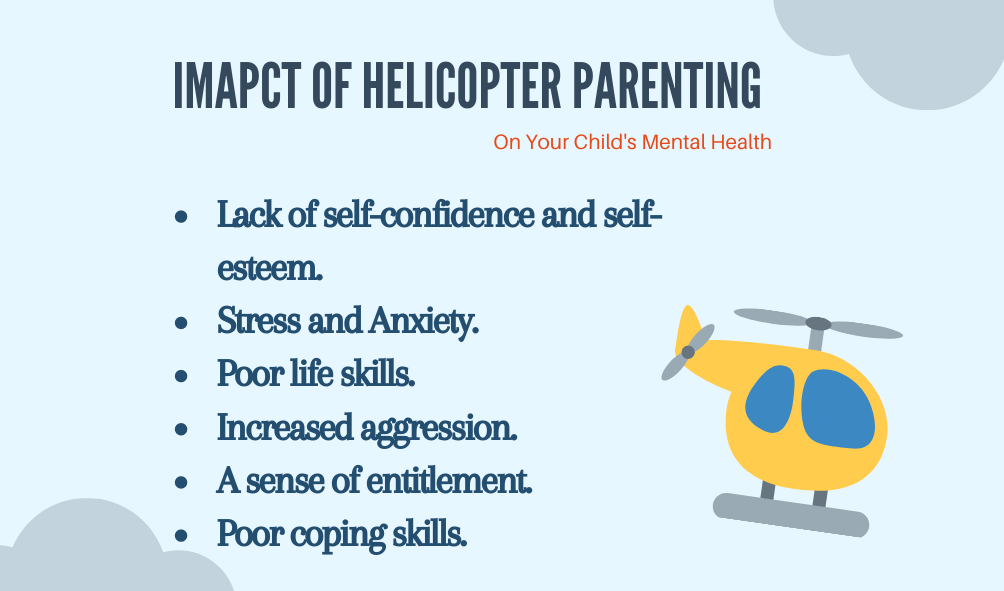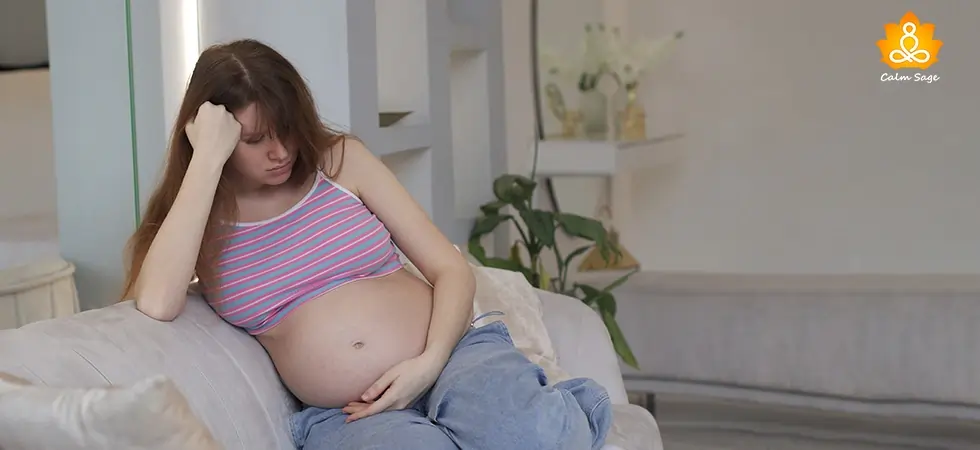7 Signs You Are A Helicopter Parent and Reasons Why You Should Stop it NOW

“There’s a lot of ugly things in this world, son. I wish I could keep ’em all away from you.”
~Atticus Finch (To Kill a Mockingbird)
A parent is always protective of his child. They will give their best to offer them all the happiness of the world. The fact that parents are always looking after us really does mend my heart.
With the changing times, the parent-child relationship has also witnessed various changes. From having a very limited connection and involvement to becoming each other’s friend, parenting styles have incorporated various positive changes.
But this friendliness, involvement, and protection that parents have to offer to their child often come with a big red siren. The siren sets the boundary between involvement and overinvolvement.
As long as your parenting style is not making that big red siren beep, you are at a good place, but if it does, the chances of it being classified as helicopter parenting increase.
C’mon, no one wants to be addressed as helicopter parents!
Let us learn about what helicopter parenting is and why it is bad for your kid’s mental health.
Helicopter Parenting: Understanding the Term
The term helicopter parenting was first used in Dr. Haim Ginott’s 1969 book Between Parents & Teenagers. The word was in fact suggested by the teens in order to describe the parents who would hover over them like a helicopter. In the year 2011, the term became popular enough to make it to the dictionary. Helicopter Parenting is also referred to as “bulldoze parenting,” “cosseting parent,” or “lawnmower parenting.”
Generally, this term is used to describe parents and their parenting style whose central features are being overly involved and extremely protective of their child. This protection is not just offered to reduce the disappointment and pain in a child’s life but also to help them succeed in their life.
Helicopter Parenting: The Driving Forces
According to psychology, an individual’s behavior is always goal-driven. Helicopter parenting is no exception to this notion! There are certain underlying reasons as to why a parent becomes a helicopter parent. The key driving forces are:
A. Pressure from other parents and society:
We human beings are always observing others and getting influenced by others’ behavior that fetches them positive outcomes. Parenting does not come with a rule book, so observing and learning becomes a major tool of parenting.
Now when a parent observes a helicopter parent and their child performing well in all areas of life, they get inspired by it. Next time you see, they have joined the helicopter parent gang.
B. Overcompensation of what they missed:
Many studies have shown that consciously or subconsciously parents expect the child to get everything and accomplish things that they couldn’t get as a child. Especially parents who weren’t involved or loved as children try to compensate for it with their own child.
Thus, they would pay immense attention to everything happening in their child’s life so that they don’t end up feeling neglected or unloved.
C. The constant fear of dire consequences:
According to Deborah Gilboa parents are always trying to protect kids from different consequences like a struggle, unhappiness, no guaranteed results, and working hard. To make this happen some parents might just go over the board and try to gain control over the situations to prevent the child from such outcomes.
For example, if the parents think that the child may fail in a particular activity and feel unhappy after that, they might not allow the child to participate in it in the first place.

Helicopter Parenting: Why Is It Bad For Your Child
While the term helicopter parenting started to take over the parenting world, scientific studies were also interested in studying its impact on the child. Surprisingly, it had both positive and negative impacts on a child’s mental health.
We shall first examine what makes helicopter parenting bad for your child’s mental health as the disadvantages outweigh the benefits.
A. Helicopter parenting leads to poor coping and problem-solving skills.
When I started learning swimming I was taught by my father that until you don’t jump into the water you will never learn to move your hands and legs in a way that protects you from drowning. The next thing I know is, I was thrown in the pool! Wondering why this story?
Well, understand it this way, that until your child doesn’t face a problem or a challenge they won’t be able to learn essential skills to work through them. So, instead of always hovering over them or protecting them from mere inconvenience, just let them explore the world outside.
While you might be thinking that by not exposing your child to the challenges you are offering them care, in reality you might be taking away their ability to feel competent in their life.
B. Helicopter parenting results in a poor sense of self.
Let us keep it simple and understand that helicopter parenting backfires! It results in developing poor self-confidence and low self-esteem in children. While you are making all the decisions for your child he might even start doubting himself and his capabilities.
Dr. Dunnewold says, “The underlying message [the parent’s] over-involvement sends to kids is ‘my parents don’t trust me to do this on my own.” This shifts their self-concept from a positive to negative note, which in turn can lead to various mental health conditions.
C. Helicopter parenting develops a sense of entitlement.
When parents are constantly involved and making important decisions for the child in all fields of his life be it academic or artistic, the child learns to believe that parents will always be there to fulfill his needs. The children get accustomed to always having things their way, thus developing a sense of entitlement.
D. Helicopter parenting gives rise to aggression.
We humans have this innate urge to practice control or dominance in our lives to enjoy a sense of power. However, for kids who have intrusive helicopter parents, they never get to taste what that feels like. So if not in their personal life, kids will try to practice control over others and as a reaction to extreme parental control they are likely to develop hostile traits. Kids of helicopter parents have lower patience levels and higher frustration bars.
E. Helicopter parenting comes with other issues.
Well that is not it! Keeping your child under your surveillance 24/7 and protecting them in a small shell with no interaction with the world, accompanes various other issues. The chances of kids with helicopter parents developing signs and symptoms of depression and anxiety is higher when compared to those who practice other parenting styles. Some of the underlying reasons that explains this link between helicopter parenting and depression and anxiety are:
- Nervousness to make decisions on their own.
- Less chances of being open to new ideas makes them self-conscious.
- The fear of failure becomes overwhelming.
- Difficulty identifying what truly drives them makes them question themselves.
- Never getting a chance to understand oneself can drift them away from happiness.

Helicopter Parenting: Is there A Good Side To It
Looking at what we have discussed so far you might be thinking that helicopter parenting is all bad! But let me break it to you that helicopter parenting isn’t all. It has a positive edge to it as well, when it is conducted in an age-appropriate manner and with proper limits.
- Helicopter parents are always aware of their kids and their whereabouts, which ticks for their safety considerations.
- They always know how they can support their child when their grades dip down or when they cross their path with failures.
- They connect with their child closely enough to pay attention to their illness, mental health concerns, or bullying issues.
- Plus, they will address these issues and work towards resolving them.
- A sense of having emotionally and supportive parents makes the child feel loved and wanted.
- Kids raised by helicopter parents tend to excel emotionally and academically in their lives.
- Maternal support is also found to be linked with developing socially acceptable behaviour in young people.
Helicopter Parenting: The Signs to Look For
By now we believe you might be eager to find out whether or not you are a helicopter parent! So here are classic signs of helicopter parenting for you to look at (more the checks higher the chances of you being a helicopter parent):
- Instead of letting your child tackle his life problems you always put your foot forward to fight their battles.
- You are overscheduling your kid so that he is on top of all the competitions.
- You are managing your child’s friendships and social relationships as well.
- The goal is to create every opportunity for their kids (as much they can).
- You are putting your goals aside just to focus on your child’s needs.
- The friend circle of the child is also decided by you.
- Taking the charge of your child’s homework and projects is also one of the signs.
- You even connect with your kids’ professors for their progress reports and poor grades.
Final Words
Let our child fall and learn from his mistakes. Well of course you can be their first aid to heal them from every time they fall but avoid being a protective shield covering them 360 degrees. Change the motto of what you are thriving for from protecting my child from the world to preparing him to face the world.
It is only when you will leave your fears behind you that the child will be able to fly (let him). Plus, it is always a great option to equip them with tools to lead a healthy life then never sharing that toolbox with them.
Give your child a chance. They got this! You got this!
Have some unresolved parenting concerns? Book your appointment with a therapist today and work on your reasons for being a helicopter parent.
Thank you for reading.
Love & Light
Anjali




















